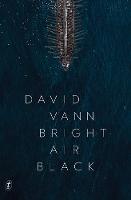Karyn Hay has an excellent ear for dialogue. Her characters’ interactions are clear, crisp and believable. When main character Frances talks to the children of her hosts at Dunleary in Tauranga, Hay creates convincing and sometimes madly humorous conversations. She obviously has children of her own and one can assume that she has partaken in many such maddening back-and-forths. After taking a photograph, agreed on by both adult and child, one interaction goes like this:
 “What shall we call it?”
“What shall we call it?”“What shall we call what?”
“The photograph.”
“What photograph?”
“The photograph I’ve just taken.”
“Can I see it?” Tussie asked eagerly, running towards her.
This Monty Python-esque exchange between the Frances and Tussie suggests that maddening conversations with the young are not, at least in Hay’s mind, restricted to the 21st Century. In fact, the dialogue presented around the children is one of the most enjoyable aspects of Hay’s novel.
A lot of the book moves at slow pace. The plot seems incidental to the finely crafted characterisations and moments – almost vignettes – which are accurately and deliberately described. Minor character Wolf’s descent into the opium den (‘ … behind their eyelids all vision was purely chimerical.’) and Marshall Harding’s feelings for love-sick hostess Hope and his fiancee Callista (‘Her aperture was more compelling than a plate of mutton stew to a sailor.’) are well-crafted moments, but the rhythm of these anecdotes moves the story with unusual rhythm. By the end of the book, though, I hardly cared: the final sections make up in pace and structure for the slow build, as Frances becomes a true heroine and seemingly random moments are shown to be anything but trivial.
There is no doubt that Karyn Hay can write very well. I’m looking forward to seeing what she puts her finely-honed ear to next.
Reviewed by Lara Liesbeth
The March of the Foxgloves
by Karyn Hay
Published by Esom House Press
ISBN 9780473365820

